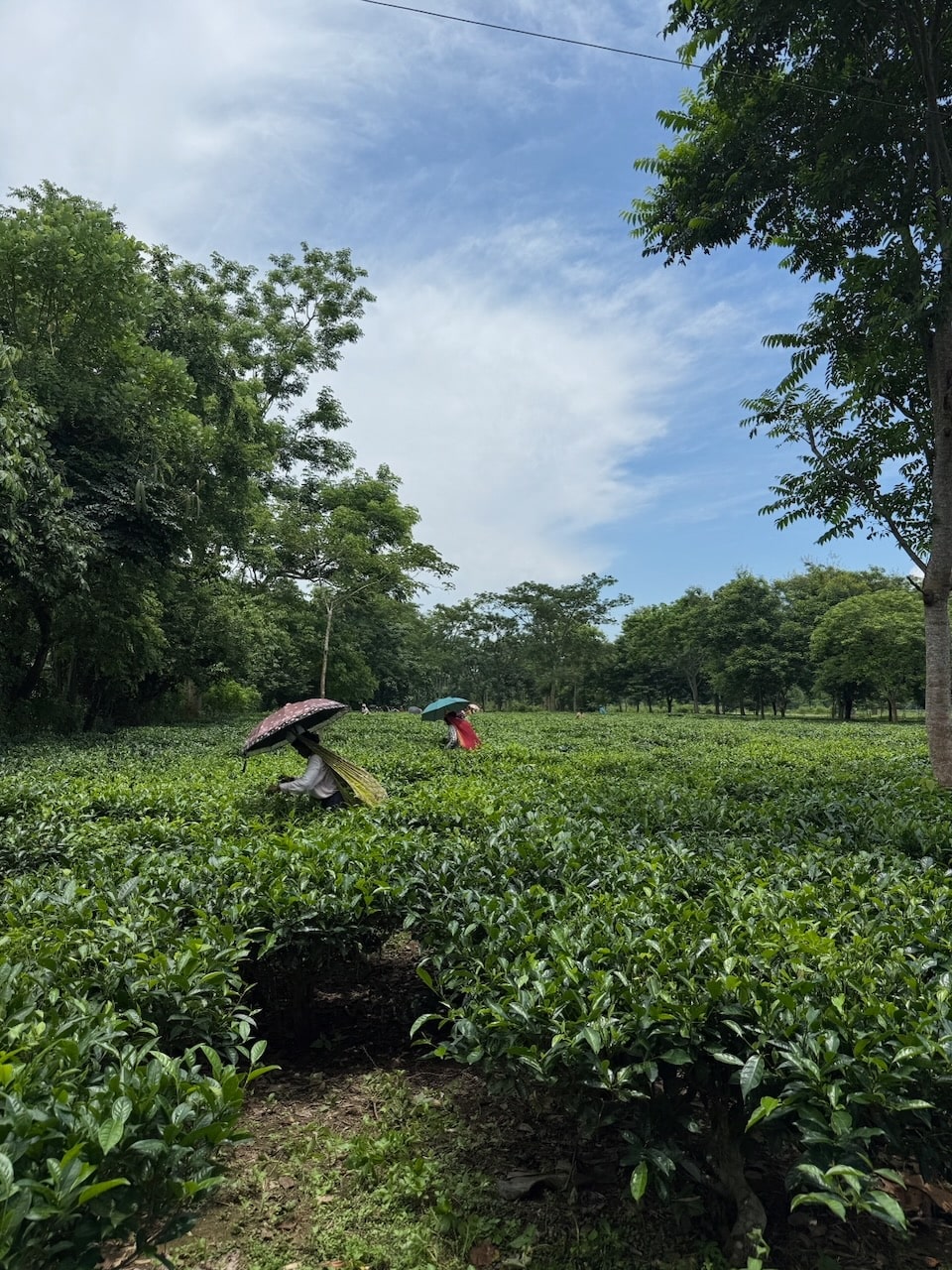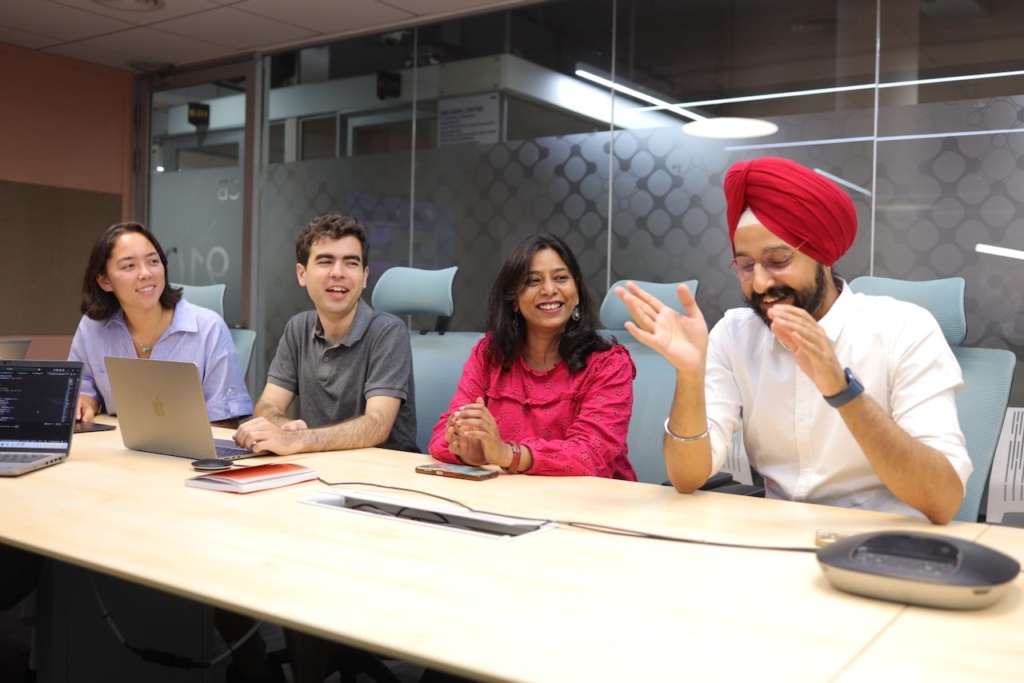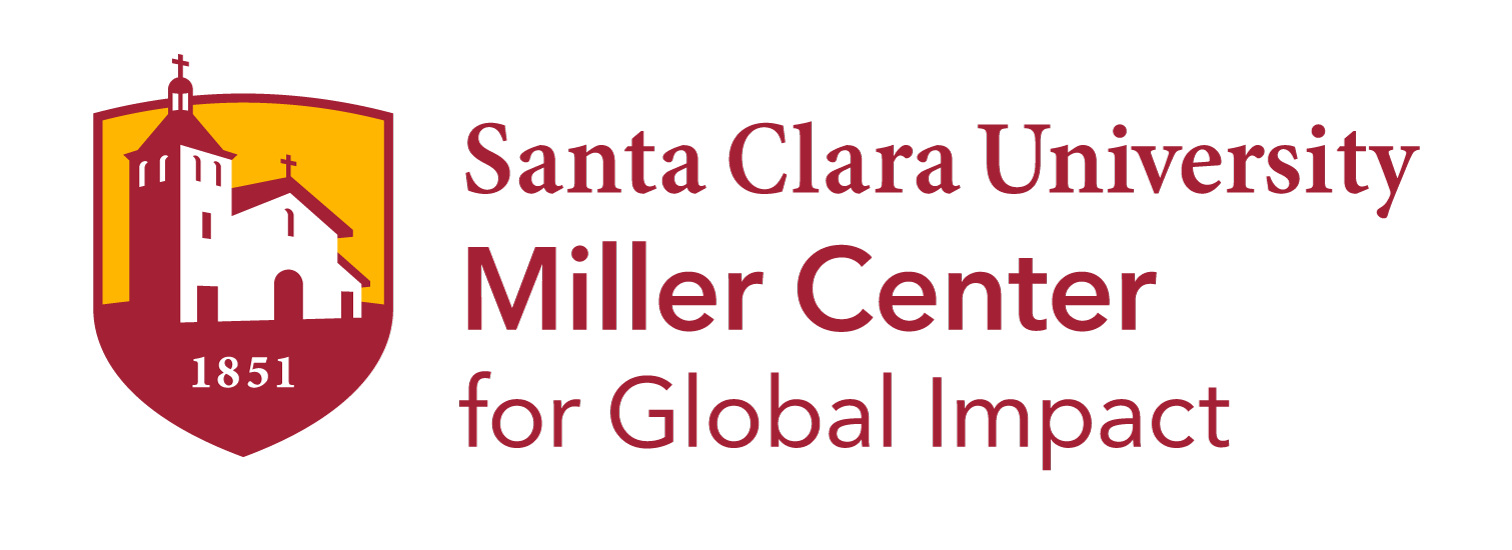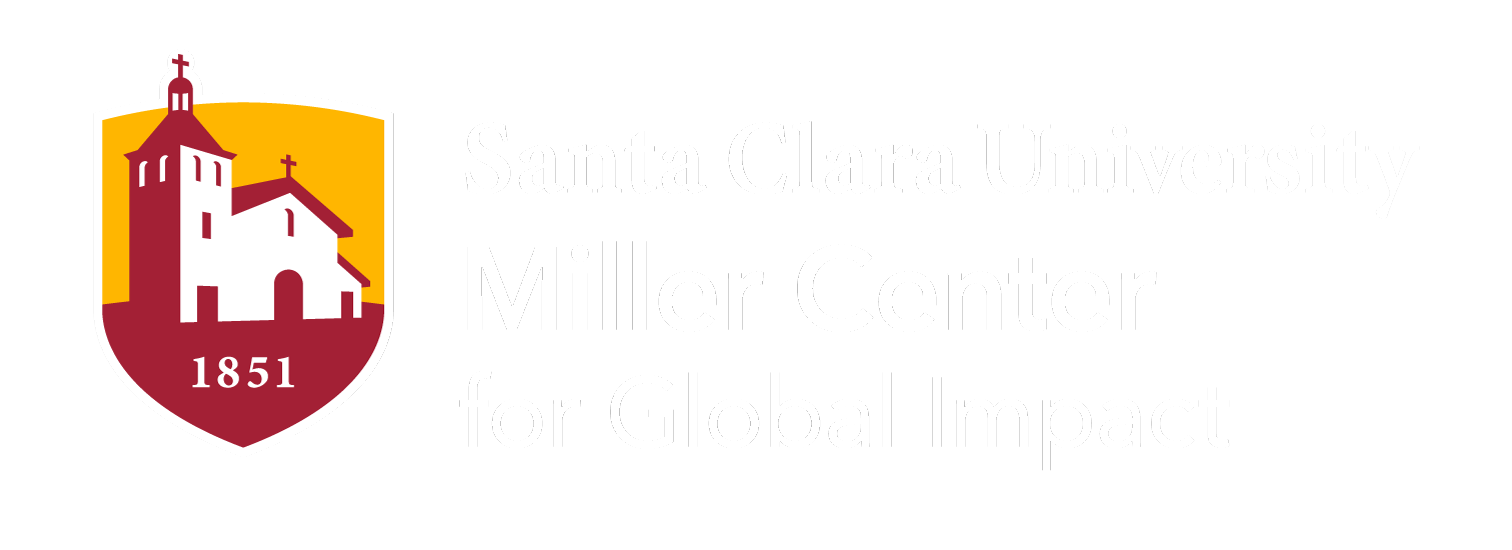By Arturo Torres Torres Landa and Rachel Lin-Peistru, 2025 Miller Center Lewis Family Fellows
Our first week in New Delhi was filled with blazing heat, excessive honking, and big ideas about carbon offsets. These big ideas meant nothing until we left the city and listened to farmers talk about trees as if they were family. We went into the project unsure about how valuable the carbon market is outside of sequestration, and left understanding the potential benefits of impactful carbon offsetting.
FCF India’s Mission in Context

FCF India’s mission is to build climate resilience for smallholder farmers by connecting them with global businesses and creating long-term livelihood opportunities. The afforestation projects are developed with local communities, promoting environmental restoration and economic sustainability. Our summer research for our Miller Center Lewis Family Fellowship focused on one key question: how can we capture the full impact of these projects, not in terms of carbon, but in terms of people?
What We Set Out to Discover
We worked to design a framework that captures the full range of social, economic, and environmental impacts of afforestation projects. We wanted to uncover how the projects shape livelihoods, empower communities, and influence people’s relationships with the land. After several weeks in New Delhi collaborating with the FCF India team, we traveled to two regions, Jharkhand and Assam, to conduct field research. These trips became the most meaningful part of our experience.
Stories, Stewardship, and Connection
Monsoon season impacted the number of farmers we were able to connect with. But when the timing aligned, we sat with farmers, listened to their stories, and asked about their experiences with tree planting. One farmer told us, “We must help the trees first so the trees can help us.” That simple statement captured exactly what we were trying to understand. For many farmers, planting trees is a moral and emotional commitment to nature. It reflected pride, stewardship, and a deep belief in reciprocity between people and the environment.

We observed that successful projects are not directed entirely from outside organizations. Community members must lead the way. Local people should be decision-makers too, not just participants. FCF India’s approach of building local infrastructure, from nursery management to access to tools and markets, reinforced this point. When farmers have ownership and leadership, projects evolve naturally into something sustainable and self-driven.
Another insight that stood out to us was how environmental awareness is increasingly tied to personal and cultural identity. Across interviews, people described their work with trees not only as a livelihood activity, but as part of who they are. We heard phrases like “trees breathe life and oxygen” and “we plant for the next generation,” showing how environmental stewardship is becoming a source of dignity and shared purpose. Recognizing and nurturing this connection can strengthen long-term community engagement and climate action.
Understanding the Challenges
At the same time, many participants shared the challenges that come with this work. Trees take years to mature, and benefits don’t arrive overnight. When we interviewed the farmers, the trees were less than three years old, with little advancement to show. We were quite confused about how we were supposed to understand the full potential of FCF’s afforestation projects when the farmers themselves had yet to experience it. Farmers spoke openly about this tension between long-term environmental gains and short-term livelihood needs. The challenge of balancing immediate survival with future resilience became one of our biggest takeaways. Climate projects expecting sustained participation need ways to bridge that gap, whether through interim income opportunities, such as spice plants, skill-building programs, or other support systems to make it possible for communities to invest in tomorrow without sacrificing today.
From a research standpoint, our biggest challenge was figuring out how to measure these intangible yet powerful outcomes when none of the assumed benefits were currently manifesting. Afforestation projects can take decades to reach full impact, and standard evaluation tools often fall short. We explored ways to integrate agricultural modeling and forecasting methods that could estimate long-term benefits while also accounting for diverse farming behaviors and local climate conditions.
What Truly Stayed With Us

Our research felt up, then down, and frustrating at times. When we would show up at farms to see a tree sapling staring back at us, we questioned what we were doing there. As we look back on our time in India, what stands out most is not the technical side of our project, but the human connection behind it. By engaging with farmers who are betting on a greener future, we were reminded that climate resilience is built from the ground up, not something imposed through policies or metrics. It grows through relationships, trust, and shared purpose. Environmental action and social change are inseparable. Climate solutions that work are those rooted in community leadership, local knowledge, and cultural pride.
We came to India hoping to contribute to FCF’s mission. We left with something deeper: a more grounded understanding of what climate resilience looks like in practice. It’s messy, patient, and it begins, always, with the people — those who care for the land today so that it can care for all of us tomorrow.
FCF is part of the portfolio of social enterprises supported through the Miller Center–Chevron Climate Resilience Initiative, which strives to help reduce poverty, drive economic and social opportunities, and develop the entrepreneurial ecosystem in the Asia Pacific region.
______________
Photos:
- Rachel and Arturo learning from smallholder farmers about their experience with FCF during their fellowship in India
- Farmers tending their crops
- Rachel and Arturo with FCF India Associate Director Shaika Rakshi and Founder and Director Jasmeet Singh

